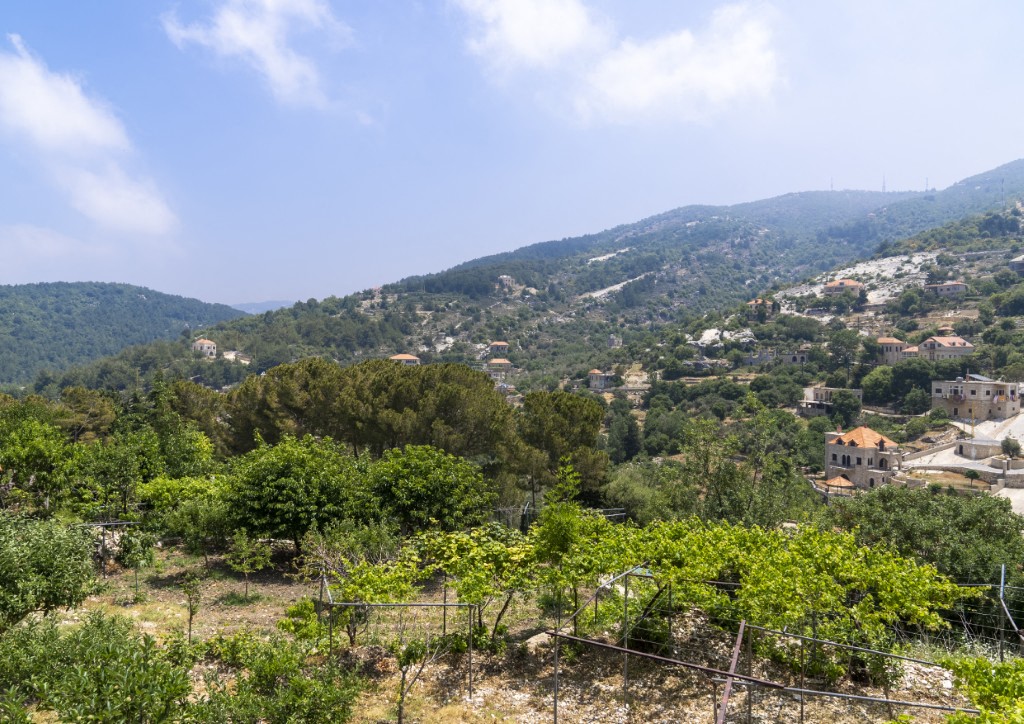Mountains cover nearly 20% of the Earth’s land surface, forming vital ecosystems and invaluable natural resources. Within this global classification, Lebanon, the “Land of the Cedars”, holds a prominent position, ranking ninth worldwide among countries with the highest proportion of mountainous terrain. With roughly 81.1% of its surface covered by mountains, this ranking is far from being a mere geographic statistic; it is a defining natural feature that shapes Lebanon’s identity and directly influences many aspects of life. The country’s western and eastern mountain ranges form its backbone, dividing it into narrow coastal plains and fertile valleys.
Lebanon’s mountainous geography carries major economic and touristic significance. The highlands play a vital role in the Lebanese economy, particularly through the tourism sector, as they offer ideal environments year-round. In winter, ski resorts serve as regional attractions, while in summer, mountain retreats provide an escape from the coastal heat, boosting adventure, hiking, and climbing tourism. Moreover, the mountain soil and terraced lands support specialized, high-value crops such as olives, vineyards (for winemaking), apples, and cherries—key components of Lebanon’s export economy. Most importantly, the mountains act as the nation’s “natural water reservoirs.” Melting snow feeds rivers and springs, ensuring water supplies for drinking, irrigation, and hydropower generation, a vital artery of economic stability.
Climatically, Lebanon’s mountains create striking variations within a small geographic area. Acting as natural barriers, they generate sharp climatic contrasts and moderate the summer heat, while also playing a crucial role in bringing rainfall and snow. Ecologically, these mountains host unique natural habitats that sustain a “rich biodiversity,” including the famous cedar forests and nature reserves, which serve as genetic reservoirs of both national and regional importance.
In an interview with Al Safa News, environmental expert Dr. Sally Jaber stated, “Lebanon’s mountainous geography is an asset that must be wisely invested in. According to our research, the focus should be on developing a ‘green mountain economy,’ which requires environmentally sustainable tourism infrastructure, stronger eco-tourism initiatives, forest protection, and regulated urban expansion in mountainous areas to prevent encroachment on natural spaces and ensure the sustainability of water resources.”
Despite these advantages, Lebanon faces significant challenges in managing its mountain wealth. Dr. Jaber explained, “Unregulated urban sprawl on mountain slopes threatens the environment and increases the risk of landslides. Environmental degradation caused by deforestation, recurring wildfires, and unmanaged waste threatens biodiversity and reduces the mountains’ ability to absorb water. Added to this are the weak infrastructure in mountain villages and the growing impact of climate change, which is expected to shorten snowfall periods and reduce precipitation, endangering both the ski industry and water reserves.”
Turning these challenges into opportunities requires decisive action, beginning with strict zoning plans to regulate construction in mountain areas and prevent encroachment on public lands, while directing investments toward eco-tourism and trail tourism to strengthen local village economies. Investment in spring protection projects, dam construction, and rainwater harvesting is also crucial to ensure water security. Environmentally, enhancing the role of forest rangers, launching extensive reforestation campaigns, and developing early warning and fire-fighting systems are essential. Finally, farmers should be supported to maintain traditional terraced agriculture, which prevents soil erosion and preserves the scenic landscape.
Lebanon’s unique geographical status, being the ninth most mountainous country in the world, is a true “national treasure.” Preserving and developing this treasure requires adopting integrated policies that balance economic development with environmental protection to ensure the sustainability of this exceptional ecosystem for generations to come.
Please post your comments on:
[email protected]
 Politics
Politics














